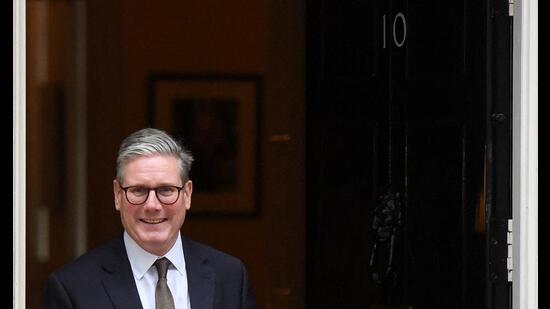Jul 13, 2024 09:13 PM IST
Now there’s an opportunity to see Blighty differently. And this time we, in India, can learn a few invaluable lessons as well.
For nearly a decade, we’ve grown accustomed to viewing Britain in terms of its flailing economy, faltering politicians, crumbling infrastructure and steadily diminishing stature. We weren’t wrong. But now there’s an opportunity to see Blighty differently. And this time we, in India, can learn a few invaluable lessons as well.

The United Kingdom is arguably the most multicultural society in the world. It has had a prime minister (PM) of Indian origin, several chancellors, foreign secretaries and home secretaries who are either Black or Asian as well as heads of Scotland, Wales and London. I can’t think of another country with a similar record.
Thirteen per cent of the MPs recently elected to the House of Commons are of Black/Asian or ethnic minority origin, compared to 10% in the previous House; 29 are people of Indian origin and 15 of Pakistani origin. Twelve are Sikhs. Yet Asians are only 8% of the population and Blacks 4%. People of Indian origin are 3.1%. People of Pakistani origin 2.7%.
In comparison, Muslims are nearly 15% of India’s population and in proportionate terms there should be 74 Muslim MPs in the Lok Sabha. There are just 24. In 2019 it was 26, in 2014, 23. We don’t have a Muslim chief minister in any of our 28 states, in 15 there’s no Muslim minister, in 10 there’s just one.
More tellingly, the ruling Bharatiya Janata Party doesn’t have a single Muslim Lok Sabha MP. In Uttar Pradesh, with nearly 20% Muslims, the party doesn’t have a single Muslim member of the legislative assembly. That was also the case in 2017. In Gujarat, it hasn’t fielded a Muslim candidate in any Lok Sabha or Vidhan Sabha election since 1998. That’s a quarter century of deliberate distancing although 9% of the state are Muslims.
There’s a second and very different lesson we could also learn. How to respond when you’ve led your party to its worst-ever defeat.
In Britain, the outgoing prime minister, Rishi Sunak resigned. He did so before 12 hours had lapsed. In fact, before the results were fully out, the Conservatives had started to publicly debate what sort of party they need to become if they’re to return to power. In the weeks and months ahead, that will intensify. And the entire country will participate in the process. The media will question and provoke, MPs will quarrel and bicker, and aspirants will step forward and drop out. It will often be embarrassing for the party whilst several individual reputations could shatter. But in the end, a new party will emerge.
Now consider what happened after the Congress plummeted to its worst-ever defeat in 2014. No one resigned. The party did not debate its future. Sonia Gandhi continued as president for three more years, eventually making way for her son. An election to choose a leader from outside the Gandhi family did not take place till 2022 and Shashi Tharoor’s candidature was frowned upon. Even today, a decade later, the Gandhis remain in effective control. Mallikarjun Kharge may be president but Rahul Gandhi is the man who matters. Sonia Gandhi, though old, unwell and usually unwilling to speak in Parliament, remains chairperson of the Congress Parliamentary Party.
There’s a third lesson too but I’ll only mention it briefly. Sunak drove to Buckingham Palace to resign in the prime minister’s official car. He left in a private car from a side gate. An hour later, Keir Starmer arrived in the leader of the opposition’s car. After his appointment as prime minister, he left for Downing Street in the PM’s official limousine. By the time he got there the Sunak family’s belongings had been packed and removed. No 10 was ready to receive the new head of government.
All of this happened within hours of the results becoming clear. The constitutional process was not paused for five days to arrange a spectacular swearing-in. The election over, the job of governance began immediately. Whilst all new prime ministers claim they’ll start work at once, the British actually do.
Karan Thapar is the author of Devil’s Advocate: The Untold Story. The views expressed are personal
Story Saved


